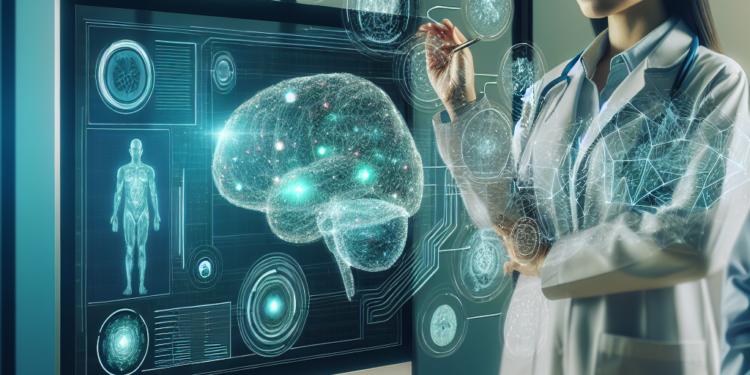Artificial intelligence has made significant advancements in numerous fields over the past few years, and one area where its potential is particularly exciting is in mental health diagnostics. With the increasing prevalence of mental health disorders, such as anxiety, depression, and bipolar disorder, the ability to accurately diagnose and treat these conditions is of paramount importance. AI has the potential to revolutionize the field of mental health diagnostics, providing better and more efficient care to those who need it most.
One of the primary ways that AI is enhancing mental health diagnostics is through the use of machine learning algorithms. These algorithms are able to analyze vast amounts of data, including patient demographics, symptoms, and medical history, to identify patterns and trends that may be indicative of a specific mental health disorder. By examining this data, AI can help clinicians make quicker and more accurate diagnoses, leading to better treatment outcomes for patients.
Another way in which AI is improving mental health diagnostics is through the development of digital mental health tools. These tools, which include chatbots, virtual therapists, and mobile apps, are designed to provide support and guidance to individuals struggling with mental health issues. By using AI algorithms to analyze user input and provide personalized recommendations, these tools can help individuals identify and manage their symptoms more effectively.
Furthermore, AI is also being used to develop new diagnostic tools that can help clinicians assess mental health disorders more accurately. For example, researchers have developed AI-powered facial recognition software that can analyze facial expressions and detect signs of mental health disorders, such as depression or anxiety. By incorporating this technology into routine mental health assessments, clinicians can gain valuable insights into their patients’ emotional states, leading to more tailored and effective treatment plans.
In addition to improving diagnostic accuracy, AI is also helping to streamline the mental health treatment process. By automating administrative tasks, such as appointment scheduling and billing, AI can help mental health professionals spend more time focusing on patient care. This can lead to quicker access to treatment and improved outcomes for patients, who may be able to receive the help they need more efficiently.
Despite the many benefits of AI in mental health diagnostics, there are also some challenges that must be addressed. For example, there are concerns about the privacy and security of patient data, as well as the potential for bias in AI algorithms. Additionally, there is a need for more research to validate the effectiveness of AI-based diagnostic tools and ensure that they are safe and reliable for use in clinical settings.
Overall, the potential of AI to enhance mental health diagnostics is vast, and as the technology continues to evolve, we can expect to see even greater improvements in the field. By leveraging the power of machine learning algorithms, digital mental health tools, and new diagnostic technologies, clinicians can provide better care to their patients and help more people get the support they need to lead healthier and happier lives.













